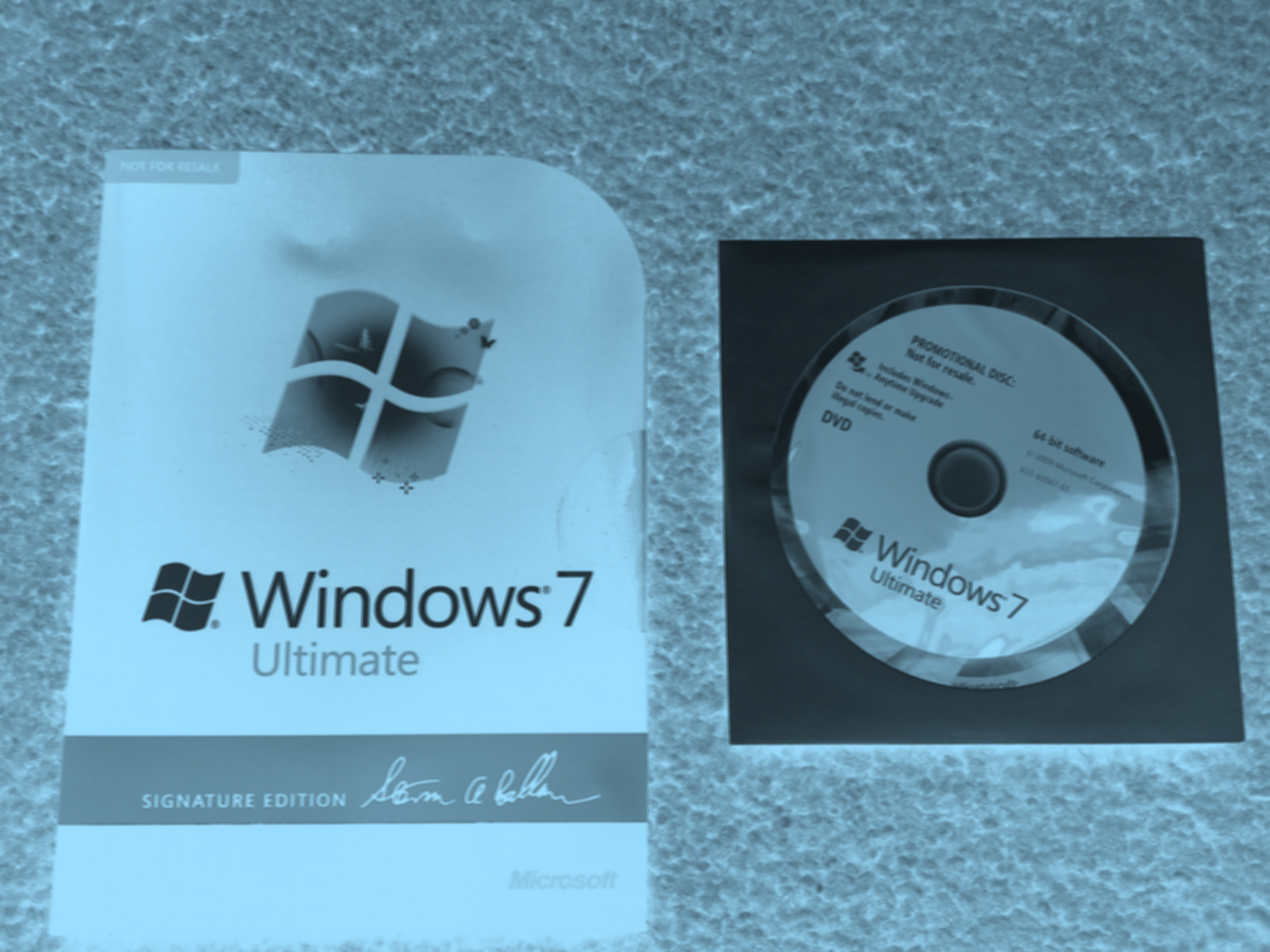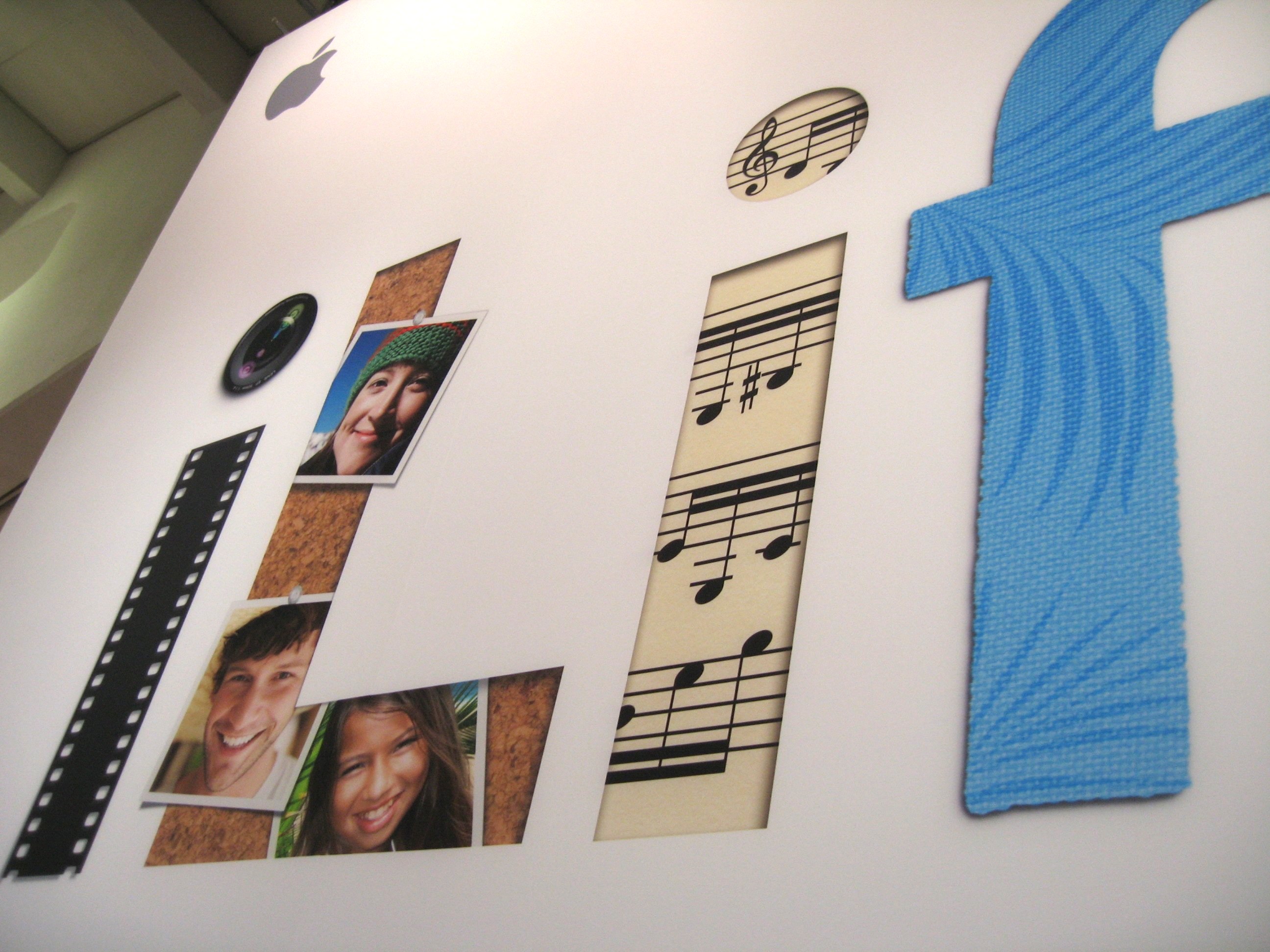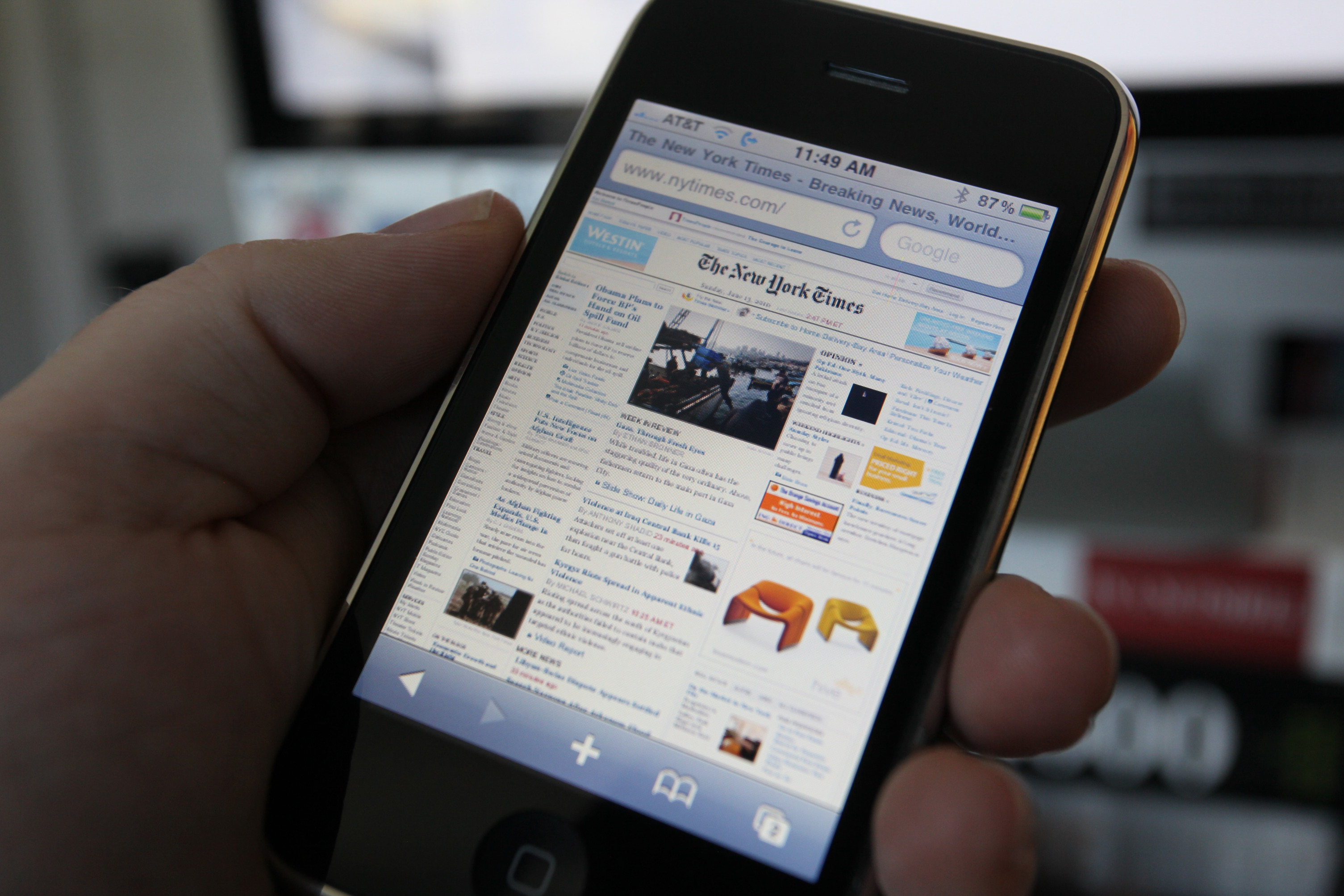Every picture tells a story. Apple presented this one during the October 2008 launch of unibody MacBook Pros. So many Macs among so many students seems outta sorts. Where are the Windows laptops? The students and Mac laptops go so oddly together.


Every picture tells a story. Apple presented this one during the October 2008 launch of unibody MacBook Pros. So many Macs among so many students seems outta sorts. Where are the Windows laptops? The students and Mac laptops go so oddly together.
Steve Jobs doesn’t want your love. He wants you to buy his stuff. David Carr

Oh my, Decoding Steve Jobs: Trust the Art, Not the Artist” is shit hitting the fan. Today, for some strange reason. Steve has got to be one of the most controversial chief executives of modern times. Beloved by the Mac faithful, praised by Wall Street analysts and cursed by many others, he is Mr. Love Him or Hate Him.

Well, well, the Web is abuzz today with rumors that Microsoft may finally be prepping a Windows “Family Pack.” Some people preordering Windows 7 might feel gipped. Perhaps they should.Overnight, Kristan Kenny set off quite the ruckus about a possible Windows 7 Home Premium Family Pack.

I would like to discuss how Apple innovates, which I understand very well. I posted about Apple’s incremental product strategy last September at Apple Watch: “Apple Demands a High Price to Be Cool.”
The pattern is consistent: Apple launches a “one more thing” product with modest hardware features but something else nevertheless killer—something people want. During the launch, Apple CEO Steve Jobs performs his marketing magic, demonstrating how this “one more thing” product will make peoples’ lives better.

Two years ago today, Apple launched the original iPhone. In June 2007, I described using Apple’s smartphone as “life changing.” Despite my grumpiness about iPhone battery life and 3G call quality, I stand by the description.

The most surprising thing about today’s Windows 7 pricing announcement isn’t the pricing, but how Microsoft directly delivered news about it. While Microsoft issued a press release, the most substantive information comes from the Windows Blog, which the release links to. For anyone still clinging to the fantasy that there is some magical separation between Microsoft public relations teams and its bloggers, wake up! There really is none.
Perhaps there shouldn’t be, and that should concern Microsoft’s outside public relations agencies and what their future role will be. People naturally are more interested in other people and what they have to say. Surely a blogger, an identifiable human being, with posted picture and personality, is more believable and memorable than a germane press release.

Flash should have a place on all mobile handsets, and Adobe is planning to make version 10 available for smartphones. But not iPhone. Now why is that? I’m going to tell you.
First this, ah, news flash. Today, Adobe showed off Flash running on Android-based smartphone HTC Hero. This is a dreamy handset. You want it. You know you do. Hell, I want it, and I recently bought a Nokia N97. While iPhone is all the rave, Android is where the big action is coming. Google gets the mobile-to-cloud applications stack better than any company, even Apple. Flash is part of the story.

Microsoft has abandoned the fundamental principles that made it the most successful software company of the last decade and ensured its software would be the most widely used everywhere. But in just three years, since 2006, startups and Apple have set a new course for technology and how societies use it.
For Microsoft, this change is scarier than movie “Quarantine.” Without a course correction, Microsoft in the 2010s will be very much like IBM was in the 1990s. That’s no place Microsoft should want to be.

Seriously, it’s kind of a “d`uh” question. Apple released iLife for Macintosh in January 2003. Every year or so, the suite gets better, with no Windows developer offering anything comparable. Isn’t it about time?
I fault Microsoft for not developing something equivalent, although, I concede, the company has the makings of a placeholder offering while working on something better (more on that in a few paragraphs). Microsoft should have stepped in when its partners didn’t.

What have I got to say about iPhone 3.0, available today, and iPhone 3GS, coming on Friday? Here is my quick take.
Editor’s Note, March 29, 2010: For about six weeks during summer 2009, and following my April 30 layoff from eWEEK, I put out my shingle as an independent analyst. I had worked as an analyst for JupiterResearch from 2003 to 2006. But the role just didn’t feel right, particularly given the economy. This post represents a feature of “quotes” for journalists to use in their stories.

Yesterday, someone asked me if “Apple has got a realistic chance with Snow Leopard?” competing against Windows 7. He was particularly interested in Macintosh uptake in the enterprise. I gave him my answer, which I will blog here with additional analysis.
My answer to his question is “No.” Snow Leopard won’t convert many more businesses to the Mac, particularly with Windows 7 launching three to six weeks later and likely appearing on new PCs before Apple’s new operating system ships. Later this year, Microsoft and its partners will cover the planet in Windows 7 marketing, which will help further marginalize Mac sales. I’ll further explain my reasoning.